Guest post by former Blog Correspondent Alicia Wallace
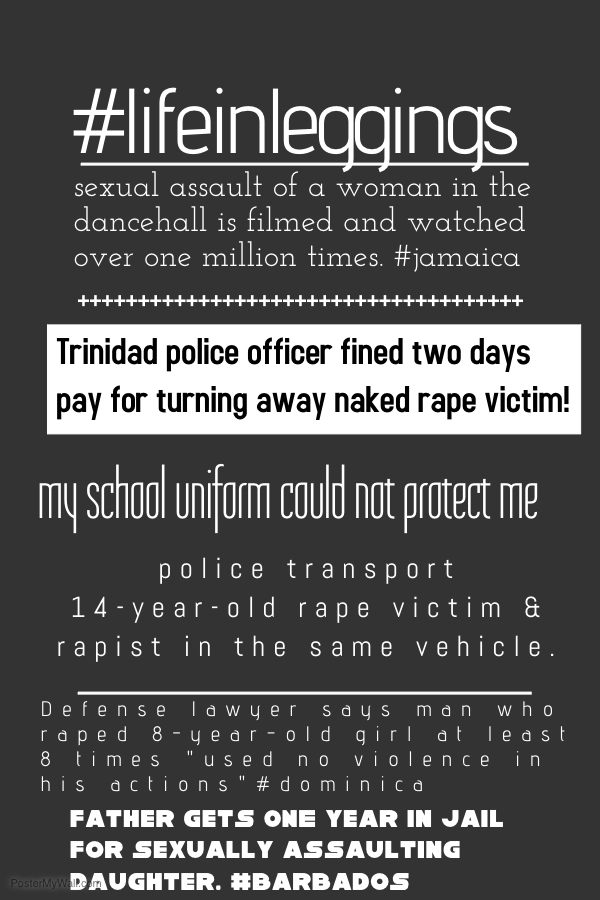
From #BlackLivesMatter in the U.S. to #SupportThePuff in The Bahamas, we’ve seen the power of social media, the rise of hashtag movements, and the propensity of new media to create change. Recently, #LifeInLeggings has gained the attention of the Caribbean region, giving women the space to share their stories of sexual violence ranging from harassment to rape. Started in Barbados by Ronelle King, the hashtag made its way to Guyana, Jamaica, Trinidad and Tobago, and The Bahamas among among other countries.
King, founder of #LifeinLeggings, told me she was frustrated by her own experiences of sexual violence. “I had an idea to create a hashtag that would create a forum for Caribbean women to share their daily experiences of sexual harassment and abuse.” She recently worked with B-GLAD (Barbados Gays, Lesbians and All-Sexuals Against Discrimination), but has found social media and blogging to better suited forms of activism for her personality and schedule.
The launch of #LifeInLeggings on the first day of 16 Days of Activism against Gender-Based Violence was coincidental. “I wasn’t aware of the 16 days of activism until the hashtag took off and people starting mentioning it in correlation with the hashtag.” King noted the importance of the annual campaign, and said she is happy to have #LifeInLeggings play a role in bringing awareness to the issue of gender-based violence.
It is difficult to predict the success of a hashtag movement, whether by geographical reach or number of participants, but King was certain she would receive support from her friends and women in Barbados, knowing it’s an everyday reality for them.
“I did intend for it to spread through the Caribbean. Rape culture isn’t just a Barbadian issue; it’s a Caribbean issue as well as a global one, so I know that support would pour in from the other countries.”
Sexual violence is a pervasive issue in the Caribbean, as evidenced by statistics. In a survey conducted in nine Caribbean countries 48% of adolescent girls reported that their sexual initiation was “forced” or “somewhat forced.” The United Nations Office on Drugs and Crime and the Latin America and the Caribbean Region of the World Bank report noted, “While the worldwide average for rape was 15 per 100,000, The Bahamas had an average of 133, St. Vincent and the Grenadines 112, Jamaica 51, Dominica 34, Barbados 25 and Trinidad and Tobago 18.”
#LifeInLeggings has given Caribbean women space to put their names, faces, and stories next to those statistics, making them a visible reality for the people around them.
In Dominica, Delroy Nesta Williams and Khadijah Moore saw the effects of #LifeInLeggings and the potential to have a national conversation. The pair started #LévéDomnik to engage the country of less than 73,000, primarily on Facebook, in the discussion. Within days, they had collected over 400 stories, some of which were shared anonymously — sent to someone’s inbox and then posted on their behalf.
Williams said this is only the beginning of the conversation in Dominica. The #LévéDomnik has met with the country’s Bureau of Women’s Affairs and several NGOs, and is planning activities for 2017 that include advocacy training, yoga sessions, focus group meetings, and educational talks. “We want people to be more empathetic towards survivors, and we want to address institutional issues that act as emotional and psychological barriers to reporting sexual offenses and seeking redress through the judicial system.”
For King, #LévéDomnik is proof that #LifeInLeggings is serving its purpose. “The hashtag was created to not only show the realities of rape culture in Barbados, but in the Caribbean. It is a defiant cry for justice and a blatant refusal to be silent.”
Sexual violence is still a taboo subject, and survivors often find it difficult to talk about their experiences. In sharing our stories, we have the opportunity to sensitize people and bring attention to an issue that is often avoided in both private conversations and public discussion. Unfortunately, large numbers of people are unmoved by issues that do not directly affect them or people close to them. People participating in the #LifeInLeggings movement have commented on changes in attitudes of men around them who have been privy to the conversation. King shared that she personally received numerous messages from men who admitted they were a part of the problem, and intend to do better.
The Barbados team encourages those following #LifeInLeggings to reflect on their own experiences with sexual violence, and think of ways to keep the discussion going in family, peer, and community groups. It is also imperative that we consider the ways our words and actions contribute to women’s everyday experiences.
#LifeInLeggings started as a simple idea, and a group of dedicated women worked together to make it region-wide conversation. It caught the attention of two women in politics and Tanya Stephens among others, and is evidence of the power we all have to make a difference. In sharing our stories, women call upon men in The Bahamas and throughout the Caribbean to respect women as human beings, and take on the responsibility in engaging other men in these important conversations and holding them accountable for their actions.
We are not only responsible for what we do, but for what we allow to happen. Bystander intervention is critical to the creation of a new culture where sexual violence has not place. Bahamian women are invited to share their stories on Facebook and/or Twitter using #LifeInLeggings. Hollaback! Bahamas is accepting stories via an online form and will post on Facebook and/or Twitter for those who would like to remain anonymous.
Alicia Wallace is a women’s rights activist, public educator, and movement builder. She is the Director of Hollaback! Bahamas, produces The Culture Rush monthly newsletter, and tweets as @_AliciaAudrey.


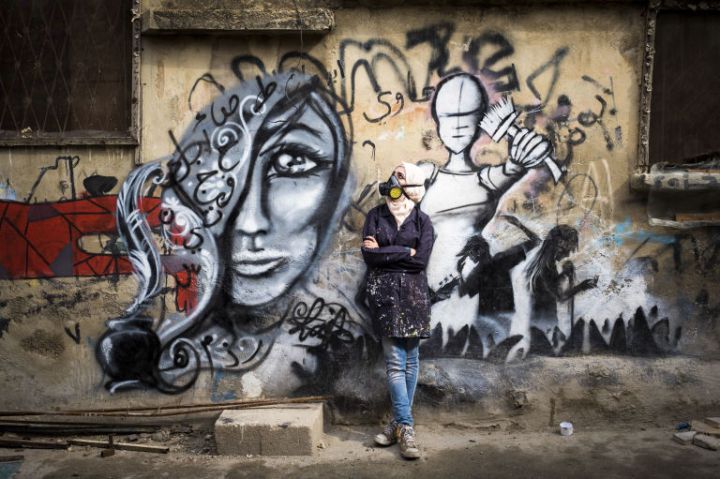 Laila Ajjawi is a renowned Palestinian graffiti artist and activist living in Irbid, Jordan, working to help empower women and communities of refugees. Through her artwork, she seeks to highlight discrimination, navigate Palestinian identities, deconstruct gender ideology, and reclaim the largely male-dominated Jordanian public space. By placing women at the centre of her pieces and celebrating female potential in all facets of life, she is challenging patriarchal attitudes and changing social perceptions.
Laila Ajjawi is a renowned Palestinian graffiti artist and activist living in Irbid, Jordan, working to help empower women and communities of refugees. Through her artwork, she seeks to highlight discrimination, navigate Palestinian identities, deconstruct gender ideology, and reclaim the largely male-dominated Jordanian public space. By placing women at the centre of her pieces and celebrating female potential in all facets of life, she is challenging patriarchal attitudes and changing social perceptions.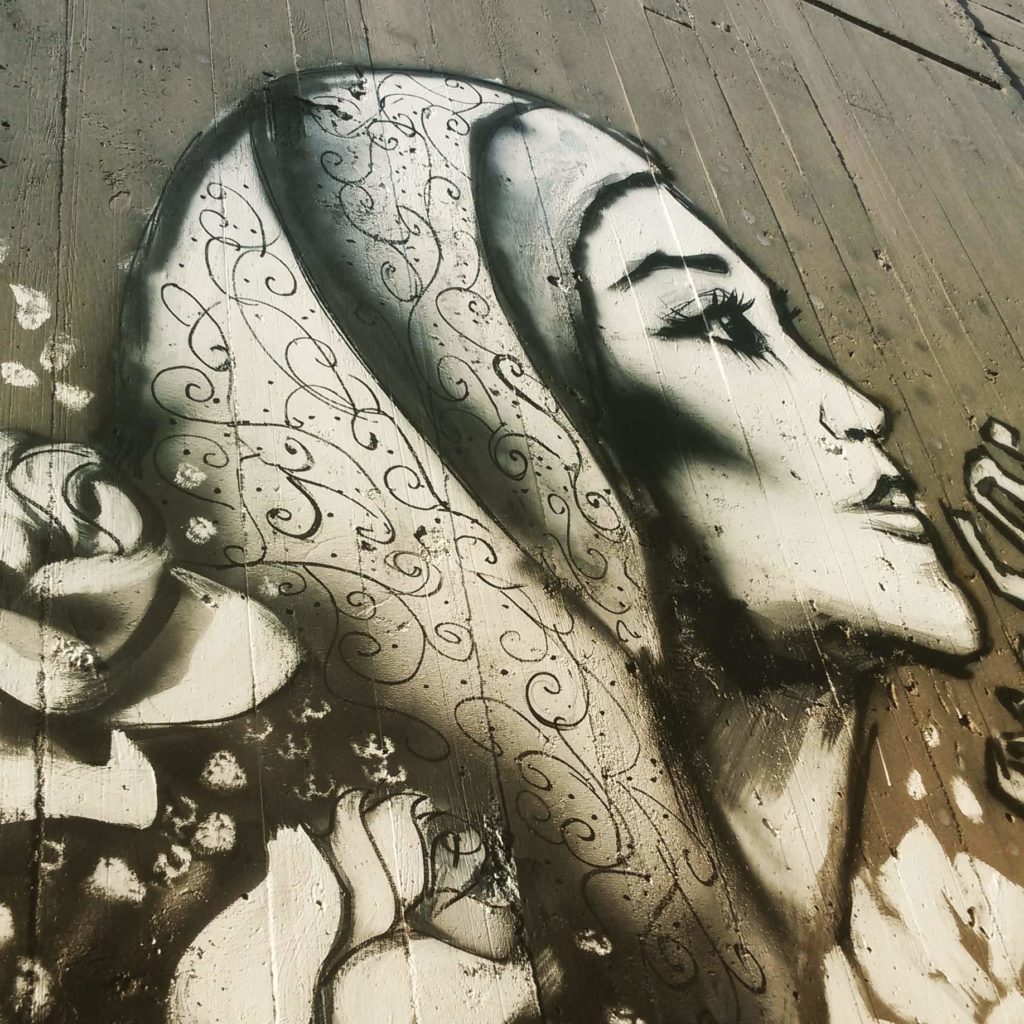 Your work is bold, brave, and powerful, rich with imagery and symbolism. Can you detail your creative process? What inspires you to create?
Your work is bold, brave, and powerful, rich with imagery and symbolism. Can you detail your creative process? What inspires you to create?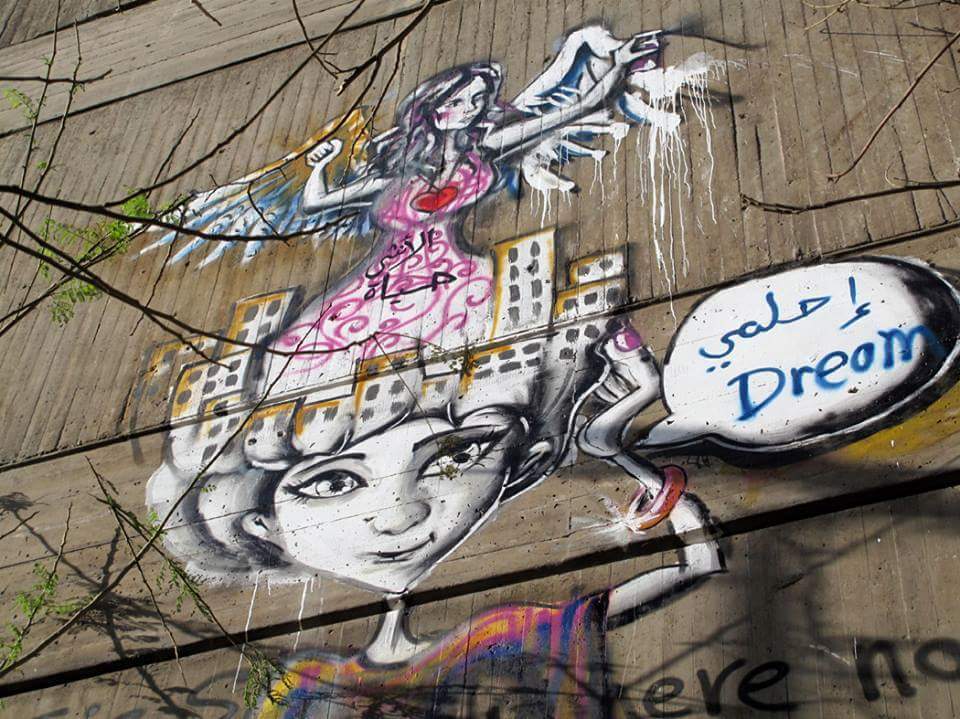 How did you get into graffiti? What about it speaks to you over other art forms?
How did you get into graffiti? What about it speaks to you over other art forms?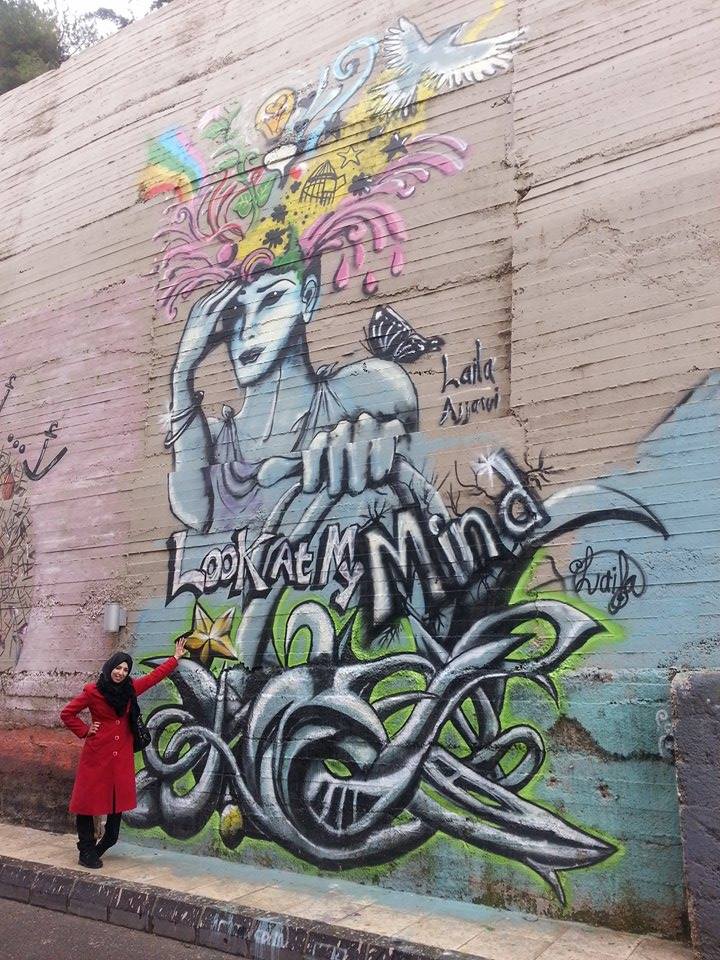 Is feminism considered a dirty word in the Arab world?
Is feminism considered a dirty word in the Arab world?